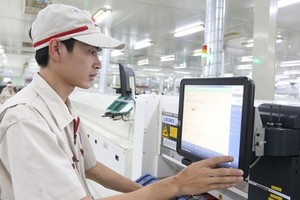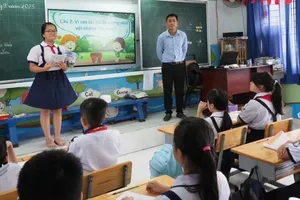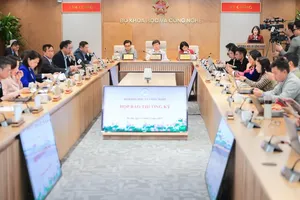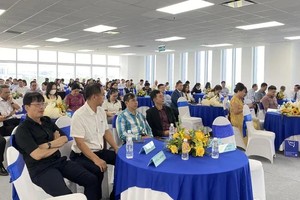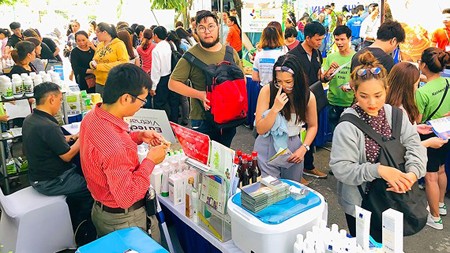
The HCMC Department of Science and Technology has recently worked with Ms. Karlene Davis, New Zealand Consulate General in HCMC, regarding the training and practice in designing an ecosystem for 20 investors, businesses, senior leaders as well as academic experts of innovative startup ecosystems in the city, who are now responsible for evaluating, making decisions, and implementing actions related to many startup ecosystems in HCMC.
Besides updating participants with the latest knowledge of the field, the training also helped them identify important aspects and priorities, and then build a detailed plan or a solution for the development of startup ecosystems.
Ms. Karlene Davis insisted that the aim of this program is to share knowledge and experience on building a system of consultation and support for startup activities of New Zealand and Vietnam; therefore, it has been specially designed to best suit the features of HCMC.
Mr. Nguyen Viet Dung, Director of the HCMC Department of Science and Technology, stated that his department was working on the learner list for the program and the implementation plan so that it can be launched as soon as possible, supposedly at the end of 2018 or the beginning of 2019. He hoped that New Zealand businesses would participate in the HCMC Innovation, Startup, and Entrepreneurship Week (WHISE) in the upcoming years.
In a working session with Mr. Doron Lebovich, Deputy Chief of Mission of the Embassy of Israel to Vietnam, the HCMC Department of Science and Technology also proposed many collaborative programs between the two countries in order to foster innovation.
Accordingly, as a result of the trip to Israel of Secretary of the HCMC’s Central party Committee Nguyen Thien Nhan, in the last quarter of 2018, HCMC will cooperate with the Israel innovation Authority (IIA) to hold knowledge exchange visits for state officers of the city to gain more experience and learn about policies as well as successful models in Israel. The two nations will also jointly organize startup activities, research result commercialization sessions, along with connection programs for technological suppliers and those in need via the HCMC online technology trading floor.
As said by Mr. Doron Lebovich, Israel has much experience and many good models on commercializing research results of universities or effective supporting programs for startups. Therefore, the HCMC Department of Science and Technology hopes that via close cooperation’s, Israel can transfer modern technologies, especially those related to renewable energy, microchip, high-tech agriculture, or after-harvesting processing, while aiding Vietnamese businesses to smoothly use them.
Mr. Nguyen Viet Dung shared that the city would work closely with Israel counterparts to provide opportunities for startup companies of both nations to introduce new technological products at major events, which are supposed to improve the national networks and the foundation for future collaboration.
Other supporting units for startup people in the city are also actively seeking international collaboration at the moment. One such example is the Saigon Innovation Hub (SIHUB), which has closely worked with the World Federation of Overseas Korean Trader Associations (World-OKTA) and the Busan United Management of Technology Center to host the Business-to-business Matching (B2B Matching) to connect Vietnamese businesses with 5 leading companies and universities in the Republic of Korea in terms of technological transfer activities and supply-demand connectivity.
In the Global Innovation Index 2018 (GII 2018) announced by the World Intellectual Property Organization (WIPO), Vietnam saw an improvement, raising 2 levels compared with 2017 to the position of 45/126 nations and economies.
















